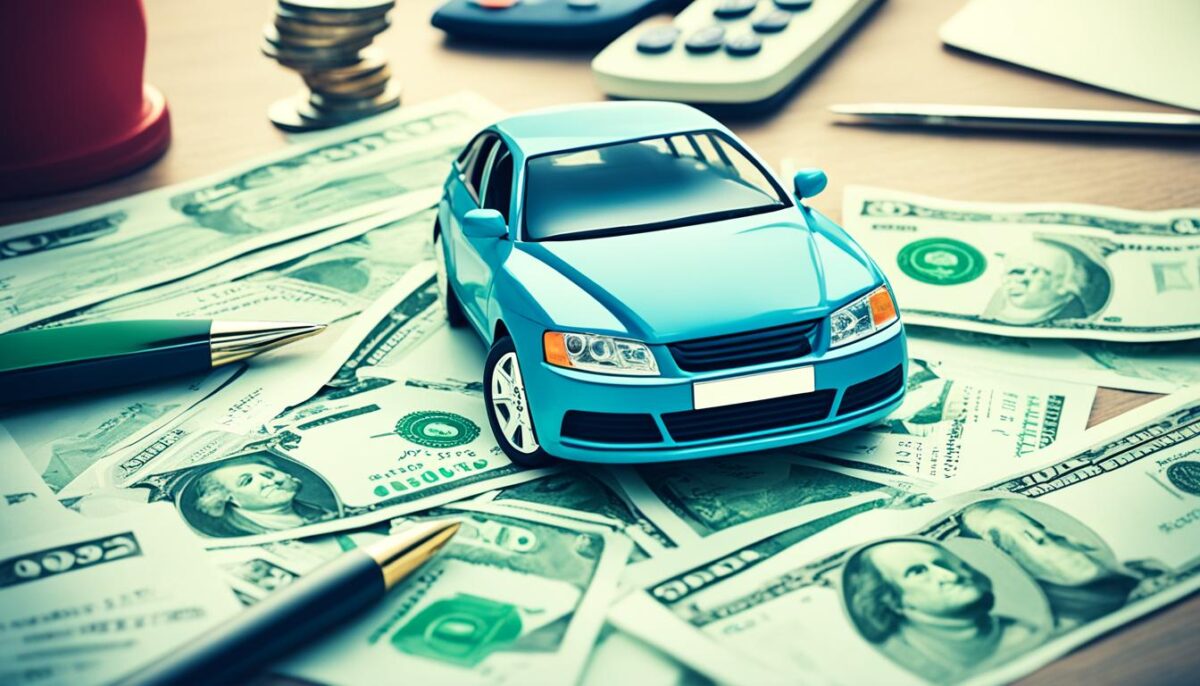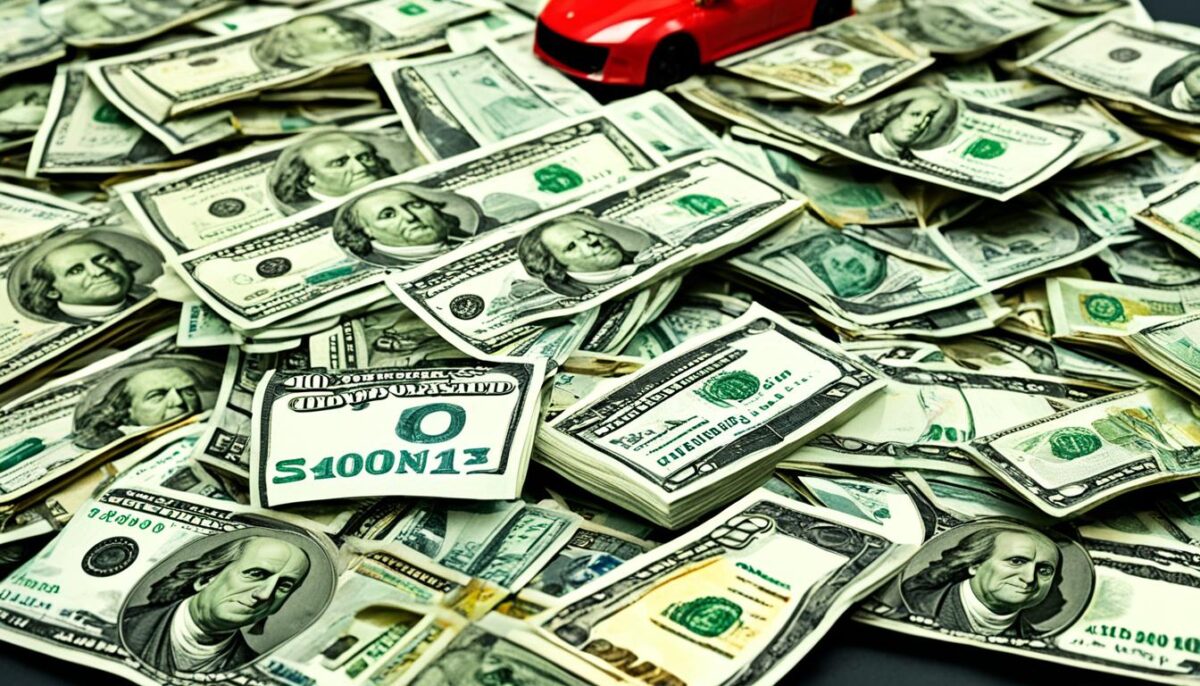Attending a car auction can be an exciting and rewarding experience, but it’s important to understand the financial considerations before you step onto the bidding floor. As we prepare to explore the world of car auctions, it’s crucial to determine how much money you should bring to ensure a successful and stress-free experience.
In this article, we’ll guide you through the various costs involved in buying a car at an auction, from the auction fees and taxes to the post-purchase expenses you’ll need to factor in. We’ll also discuss strategies for budgeting and setting a realistic bidding limit to help you make the most of your car auction experience.
Understanding the Costs Involved in Buying a Car at an Auction
Buying a car at an auction can be an exciting and potentially cost-effective way to find your next vehicle. However, it’s important to understand that the final price you pay extends beyond the hammer price. As you prepare to bid, it’s crucial to factor in the additional costs associated with the auction process.
Factoring in the Auction Fees and Taxes
Auction houses typically charge a buyer’s premium, which is a percentage of the final bid price. These fees can range from 5% to 20% or more, depending on the auction house and the type of vehicle being sold. Additionally, you may need to pay any applicable sales taxes on the purchase, which can vary by state and local jurisdiction.
To illustrate, let’s say you win the bid on a car for $10,000. If the buyer’s premium is 10%, you’ll need to add an additional $1,000 to the final price. If the sales tax rate is 7%, you’ll also need to pay $700 in taxes. In this scenario, your total cost for the car would be $11,700.
Budgeting for Post-Purchase Expenses
The expenses don’t stop there. After winning the bid, you’ll need to factor in additional costs, such as transportation, any necessary repairs or reconditioning, and vehicle registration. Depending on the condition of the car, these post-purchase expenses can add hundreds or even thousands of dollars to your overall investment.
When budgeting for a car auction, it’s essential to research the typical costs in your area and set aside sufficient funds to cover all the expenses. By anticipating these additional costs upfront, you can make a more informed decision and avoid any unwelcome surprises down the line.
| Cost | Example Amount |
|---|---|
| Auction Fees (Buyer’s Premium) | $1,000 (10% of $10,000 bid price) |
| Taxes | $700 (7% of $10,000 bid price) |
| Transportation | $500 |
| Repairs and Reconditioning | $1,000 |
| Registration | $150 |
| Total Estimated Cost | $3,350 |
In this example, the total estimated cost of buying a car at an auction, including the auction fees, taxes, and post-purchase expenses, is $13,350. By understanding and budgeting for these additional costs, you can make a more informed decision and avoid any financial surprises.

“The key to success in car auctions is anticipating all the costs, not just the hammer price. Careful budgeting is essential to ensuring you don’t overspend and end up with a car that’s more expensive than you bargained for.”
How Much Money Car Auction: Preparing Your Financing
When it comes to financing your car auction purchases, preparation is key. Whether you’re a seasoned auction-goer or a first-time buyer, understanding the various financing options available and crafting a strategic budget can make all the difference in your success at the auction.
One of the most crucial steps in preparing your financing is securing pre-approved loans. By obtaining pre-approval from financial institutions or lenders, you’ll have the peace of mind of knowing your financing is in place before the auction even begins. This not only streamlines the purchasing process but also demonstrates your seriousness as a buyer, potentially giving you an edge over those who haven’t secured their financing in advance.
Exploring Your Financing Options
When it comes to financing your car auction purchases, you have several options to consider:
- Pre-approved Loans: Securing a pre-approved loan from a bank, credit union, or online lender can provide you with the necessary funds to bid confidently and complete the purchase. This approach ensures you have a set budget and avoid the risk of being outbid due to insufficient funds.
- Cash: Using cash on hand is another viable option, especially if you have the funds readily available. This eliminates the need for loan approval and can simplify the transaction process.
- Combination of Financing: For some buyers, a combination of pre-approved financing and cash may be the best approach. This hybrid strategy allows you to leverage the benefits of both options, potentially increasing your bidding power while also maintaining financial flexibility.
Determining Your Car Auction Budget
Crafting a realistic budget is essential when preparing to attend a car auction. Consider factors such as the auction fees, applicable taxes, and any potential post-purchase expenses like repairs or transportation. By meticulously planning your budget, you can avoid overspending and ensure a seamless car auction experience.
Remember, financing your car auction purchases is a critical component of your overall strategy. By exploring your options, securing pre-approved financing, and establishing a realistic budget, you’ll be well-equipped to navigate the auction floor and make informed decisions that align with your financial goals.

“Preparation is the key to success at any car auction. Ensure your financing is in order, your budget is realistic, and you’re ready to make strategic bids that align with your financial capabilities.”
Setting a Realistic Bidding Limit
When attending a car auction, it’s crucial to set a realistic bidding limit to avoid overspending. To establish a sensible limit, we need to research the fair market value of the vehicle we’re interested in. This involves comparing prices of similar make, model, and condition cars sold at recent auctions or listed on reputable online marketplaces.
Effective bidding strategies can help us stick to our budget during the auction process. We should avoid getting caught up in the excitement and bidding wars, which can easily lead to exceeding our predetermined limit. Instead, we can set a maximum bid and stick to it, even if it means walking away from a tempting deal.
By taking the time to thoroughly research the vehicle’s value and developing a disciplined bidding approach, we can confidently navigate the car auction scene and come away with a fair deal that fits within our budget. Staying grounded in the data and maintaining control over our emotions will be key to avoiding overspending and ensuring a successful auction experience.




